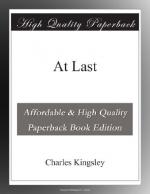“Rosa! dear friend! my sympathizing little sister! I shall not readily gain my own pardon for having distressed you so sorely. When you can do it with comparative ease to yourself, I want you to tell me one or two things more, and then we will never allude to irreparable bygones again.”
“I am ready!” removing her soaked cambric, and forcing a fluttering smile that might show how composed she was; “don’t think of me! I was only grieved for your sake, and sorry because I had unwittingly hurt you. I was in hopes—I imagined—”
“That I had ontlived my disappointment? You said, that same September day, that women hid their green wounds in sewing rooms and oratories. Mine should have been cauterized long ago, by other and harsher means, you think. It seldom bleeds—but tonight, I had not time to ward off the point of the knife and it touched a raw spot. Don’t let me frighten you! now that the worst is upon me, I must be calmer presently. You were at Ridgeley, in September, a year since, when she who was then Miss Aylett”—compelling himself to the articulation of the sentence that signified the later change—“received her brother’s command to reject me?”
“I was.”
“He would never tell me upon what evil report his prohibition was based. He was more communicative with his sister, I suppose?”
And Rosa, following the example of other women—and men—who vaunt their principles more highly than she did hers, made a frank disclosure of part of the truth and held her tongue as to the rest.
“I couldn’t help seeing that something was wrong, for Mabel, who, up to the receipt of her brother’s letter and one from you that came by the same mail, had been very cheerful and talkative, suddenly grew more serious and reserved than was her habit at any time; but she told me nothing whatever, never mentioned your name again in my hearing. Mrs. Sutton did hint to me her fear that Mr. Aylett had heard something prejudicial to your character, which had greatly displeased him and shocked Mabel, but even she was unaccountably reticent. Intense as was my anxiety to learn the particulars of the story, and upon what evidence they were induced to believe it, I dared not press my inquiry into what it was plain they intended to guard as a family secret.”
His reply was just what she had foreseen and guarded against.
“It would have been a kind and worthy deed, had you written to warn me of my danger, and advised me to make my defence in person. As it was, I was thrown off roughly and pitilessly—my demand upon the brother for the particulars of the accusation against me—my appeal to the sister—loving and earnest as words could make it—for permission to visit her and learn from her own lips that she trusted or disowned me, were alike disregarded. Mr. Aylett’s response was a second letter, more coldly insulting than the first—hers, the return of my last, after she had opened and read it, then the surrender




